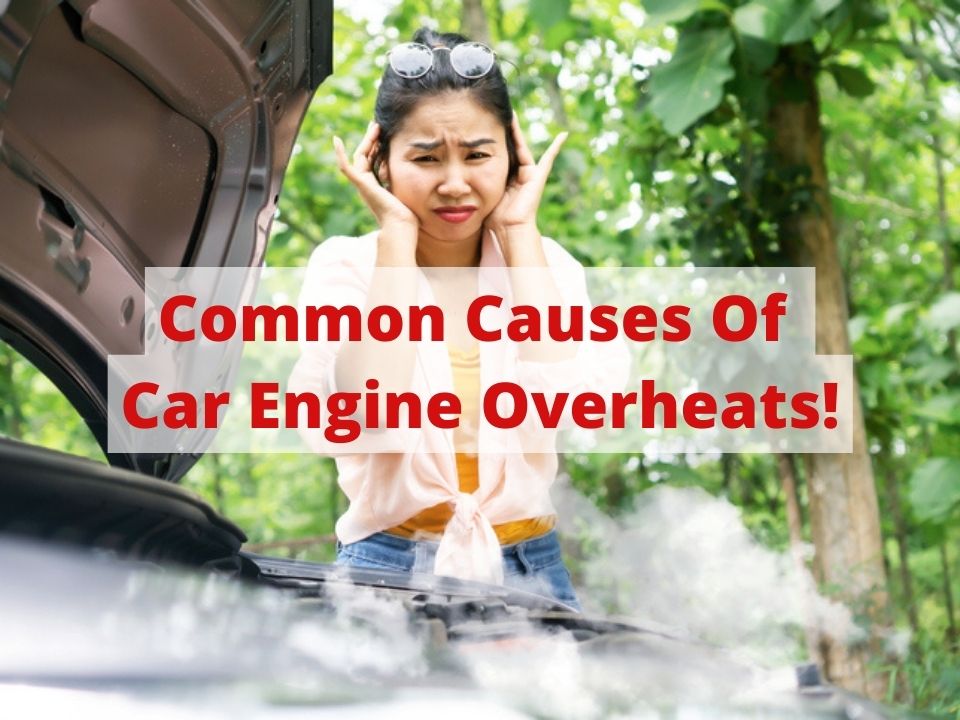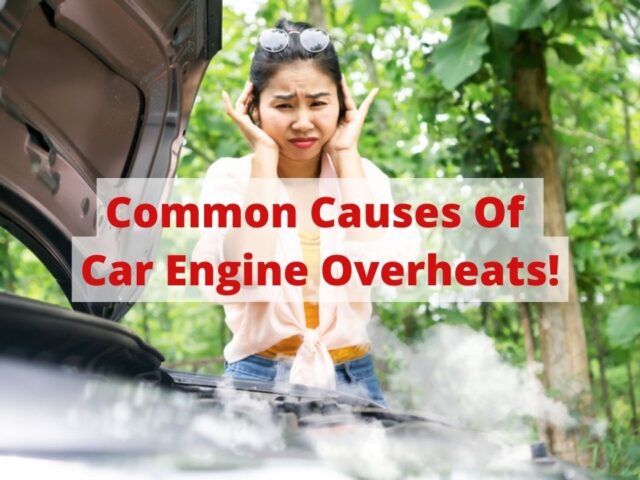
Engine overheats is really no joke. If you ever left it unchecked, it could grow into serious issues with irreparable damage.
A car engine can overheat when something is wrong with the engine components or the engine’s cooling system. We should not ignore any signs of overheating, such as a spike in your engine temperature gauge, white smoke or water vapor rising from the engine bay, and a burnt or acrid smell from the engine.
This article is written to help you understand the most common causes for this ‘burning issue’!
6 Reasons Why Your Engine Is Overheating
1. Broken Thermostat
The car’s engine might not be getting enough coolant with a malfunctioned thermostat, which will result in the car overheating. A working thermostat controls the amount of coolant that enters the engine. Signs of a faulty thermostat include coolant leaks and frequent temperature fluctuations.
2. Damaged Radiator Fan
The radiator fan blows cool air through the radiator fins to cool the coolant in the radiator. A faulty radiator fan is not able to dissipate the heat it carries from the engine, leading to overheating. Some common issues that can cause your radiator fan to fail are faulty engine coolant temperature sensor or sensor relay, problems with the fan motor, damaged wiring, and damaged or loose fuse.
3. Clogged Radiator
A radiator pipe with sedimented rust will disrupt the flow of the radiator coolant and reduce its ability to dissipate heat from the engine. It can cause coolant leaking and even damage the water pump in the long run. Besides the coolant, air also needs to circulate freely through the radiator fins to make sure the radiator stays cool.
4. Damaged Water Pump
A faulty water pump will disrupt the flow of the radiant coolant within the cooling system, which result the engine to overheats and possible coolant leakage. A common issue with the car water pump is a worn-out impeller or a loose connection between the impeller and impeller shaft.
5. Leaking Head Gasket
One of the key functions of the head gasket, compressed between the engine block and cylinder head, is to seal the engine block while keeping coolant and engine oil from mixing. A leak in the head gasket could cause the gas from the cylinder to enter the cooling system and increase the cooling system’s pressure, which can cause the coolant to be pushed out.
6. Trapped Air in the Cooling System
Low coolant levels in the radiator can cause the water to evaporate and produce air bubbles. These bubbles can also be trapped when performing an incomplete radiator fill-up or improper coolant flush. When there’s air inside the cooling system, the coolant won’t be able to reach the critical components of your engine and increase the risk of engine overheating.
Now you have seen a few common causes that can make your car engine overheats. Does your car show any of these things before this? If yes, then you should pay extra attention to it. It’s better late than never! Or maybe it’s time to upgrade to one to reduce the chances of engine overheating! Head on over to Carsome, the largest selection of quality-assured cars to purchase your good as a new pre-owned car. Psstt… you can also trade in your old car at Carsome!
For Your Car Maintenance:










